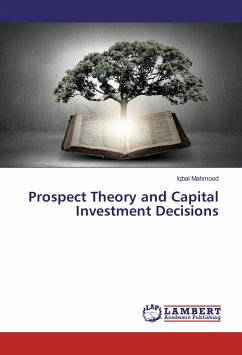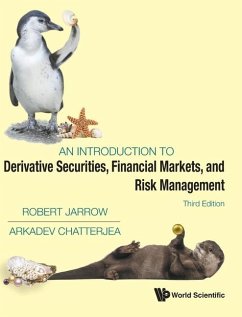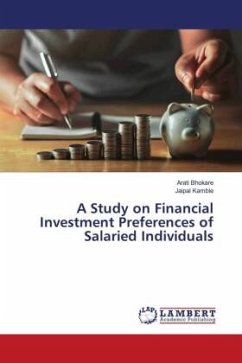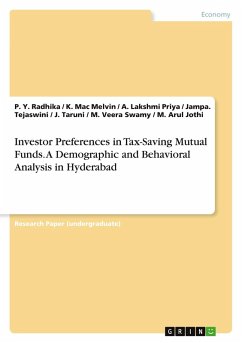
Third-Order Risk Preferences and Cumulative Prospect Theory
An Experimental Study
Versandkostenfrei!
Versandfertig in 1-2 Wochen
60,00 €
inkl. MwSt.

PAYBACK Punkte
0 °P sammeln!
There is broad theoretical and empirical evidence that investors exhibit a preference for skewness. However, there is little research regarding the extent to which individuals really favor positive skewness in individual decision making. In this dissertation, a controlled laboratory experiment is used to test for skewness preferences and prudence ¿ a broader third-order risk preference that is closely linked to skewness preferences. Skewness and prudence preferences are further analyzed both within an Expected Utility Theory framework as well as with Cumulative Prospect Theory. For this, a so...
There is broad theoretical and empirical evidence that investors exhibit a preference for skewness. However, there is little research regarding the extent to which individuals really favor positive skewness in individual decision making. In this dissertation, a controlled laboratory experiment is used to test for skewness preferences and prudence ¿ a broader third-order risk preference that is closely linked to skewness preferences. Skewness and prudence preferences are further analyzed both within an Expected Utility Theory framework as well as with Cumulative Prospect Theory. For this, a sound experimental setup is used that also excludes any potentially distortionary effects from loss aversion. This dissertation therefore contributes to better understanding of individual risk preferences and other impact factors, such as a more ¿rational¿ vs. a more ¿intuitive¿ decision making process in individual decision making.












